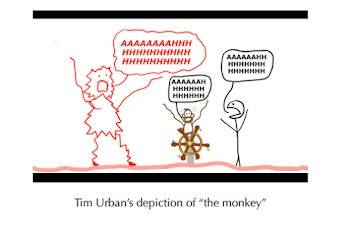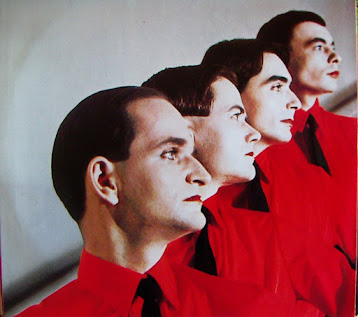Planning Your Life Makes You Happier
By Vittorio Compagno for this Carl Kruse Blog
Here’s My Experience
A few weeks ago I was lost at the foot of my bed, sitting on the floor, reading a book,
immersing myself in the words and the worlds that I imagined, wanting to drive away the
thought of an exam that I would have had shortly thereafter.
The more I leafed through the pages, the closer my mind seemed to approach the task to
which I could not escape, and if I did, I would have lost time studying for and taking another,
and the cyclical anxiety that this would entail. And that’s how the life I was living more and
more day by day seemed built on a house of cards, ready to fall on me at the first gust of
wind, which, sooner or later, would come.
And it came.
I finally failed that exam, I could take another one after two weeks, but I knew that the same
situation would always be repeated, that my feelings about the hot and guilty stasis would
not change on their own. So, taking advantage of the fall of the house of cards, I wanted to
start over from its foundations. I began to wonder what was stopping me during those very
long afternoons that seemed to bring me more pain than pleasure, and I realised that I, like
millions of people, am a victim of procrastination.
This word is also used in ironic terms, like all words that reflect unpleasant mental states,
either to drive out the gravity of them, or because those who do not understand them want to
convey some depth claiming to be anxious, or depressed.
And even if in my interpretation I was wrong, what did it matter? The symptoms and
consequences were those of a mind torn by conflicts between its instinctive and rational part.
A battle that was constantly taking place, in which one party told me, now in a hedonistic
thrust, now in lazy one, now in an excited one, to seek pleasure. And then the other part of
me knew profoundly how ephemeral that same pleasure was. This mental phenomenon is
explained in fairy-tale lines by Tim Urban in one of his Ted talks about procrastination, in
which he imagines his irrational part as a monkey who constantly steers his reason away, and
who deflects it.
Well, I wanted to get my rudder back, and I knew that it would have been partially painful.
Like any problem-obsessed Millennial, I set out in the realm of Google, looking for solutions
and new currents of thought that could help me overcome that state of mind. I ended up, as
often happens, in the lands of YouTube, where the visual impulse counts much more than any
input inherent to the other senses. And there, among the writers of the motivational
discourses, those convinced in making me become a crudist (procrastination for them is a
lack of energy, obviously caused by everything that is not a blade of grass), I actually learned
new points of view.
I understood that to temporarily remove the ghosts of procrastination, it was necessary to see
what I had to do objectively, place it in time, in a list of commitments that I would have, and
not only think "I will have to do it".
The transposition of the imaginary into written matter helps to take pressure off our brain,
and it also diminishes the chances of forgetting it. This sense of security helps to live the
commitment with less anxiety, without the fear of not remembering it anymore, and with
completely positive feelings.
So, the first thing I did was taking a journal that I had laying around somewhere, and I started
writing on paper my schedule, my deadlines, exams, appointments, birthdays: all that was
worth remembering.
But then, I was not satisfied by the fact that they were written in that manner, like simple
meaningless strings, and I put them in little rectangles, sometimes coloured. Then I started to
move these rectangles, and to look up a task, then another that I would have had before or
after that, and to play with geometric shapes to organise my work, as well as my free time.
I found out paper is a limit, so I set myself up with a digital calendar. I was able to move
those blocks back and forth until I found a satisfactory balance, and I realised one thing: to
see one’s own week, or month it may be, with external eyes, as if I were combining the
ingredients of a recipe, is an essential weapon in fighting the monkey that deflects the rudder
of rationality.
When you look at your available time "from above", as if you were in another dimension
where time becomes only a physical obstacle that can be overcome, you understand the
truth with which you could organise those days, the "spaces" available between
commitments, And most importantly, you work to optimise everything.
My rational part came into play more and more often in the attempt to connect those
coloured blocks in such a way that they did not coincide too much with each other, to give
me breath between my tasks.
Then I made sure that a certain activity was evenly distributed throughout the week, to avoid
neglecting hobbies like reading, or hanging out with friends, which I somewhat mechanically
schematised.
What might seem to an outside eye a maniacal attempt to control one’s life, is actually one of
the best gifts you can make to yourself.
A clear vision of every commitment and task, with all the variables (unpredictable or not) of
the case, help to have not a life more grey, but happier.
Needless to say, the week I planned the Sunday before started and ended without problems,
with an alarming speed. I moved between a block and the other because that's what my
rational part planned on Sunday, and the effect caused by the vision of my commitments in
coloured rectangles is very different from what you might think.
In fact, I imagine someone would have wondered if it was not a too grey vision of my life, a
succession of meaningless commitments except for the color of which they were filled on the
homepage of my calendar app, but it was not at all like so.
Nothing could be further away. The effect of all this on me was quite the opposite.
I managed to see my time as a valuable and scarce resource, especially in a day. In the
process of doing that, I often stopped to think that it would be nice to have more than 24
hours, and not to necessarily sleep 7 hours a night. But there are limits that clearly cannot be
overcome. However, just for the constraint to only 16/17 free hours in a day, I felt, I
understood, that every goal and every hour that would pass had to be unique, and I would
have to exploit it to the end.
So, after a few days, at the end of the first week, I found myself with a lot to say about my
experience, because yes, procrastination can be defeated, but it’s not something that can
happen on its own.
We must exploit the spark of dynamism that comes from the desire to free ourselves from its
chains, we must use that vital momentum we have the day after a lazy afternoon. All this may
be the best of beginnings, but more needs to be done.
A saying in ancient Latin says"verba volant, scripta manent" (the words fly, all that is written remains). And so every wordof encouragement with which we were able to persuade ourselves to be dictated by our
minds fades quickly, very soon, in about two/three days. What remains is what that push hasgiven us, which we must leave a trace of. How to leave a trace? Whichever method we prefer. We can use a calendar, a journal, a digital calendar, even a blackboard for that, but we must not let oblivion turn off our motivations.
To summarise, we can classify the best methods of digital organisation into a list.
Journal
Whether you want to write the most important tasks, such as exams, dating friends or just a
little memento, a dear old agenda is always a safe bet. The advantages are many. It is said that
paper and pen help to better preserve the memory of something, and agendas are offered in
many sizes, sizes, or colors. There are daily, weekly, or monthly agendas, and the choice falls
primarily on personal preferences.
The only impediment in the agendas is their size, as well as the fact that you must always
carry a pen, which is not at all obvious, because many times I happened to forget one at
home.
Post-its
The post it definitely belongs to the kitchen, or to places where they can be hung and seen
every time you pass by a certain place. They are ideal if you do not want to bring along an
journal, but their limit is the size, and therefore the ability to organize long periods of time at
once.
Calendar
A calendar is almost always a good investment. Although it can not be carried around (or no
one has ever come up with the idea of doing so) it is useful to have it around the house, to
signal important events such as birthdays, or payments.
Paper or digital?
The eternal diatribe between the choice of paper and the digital medium will certainly not be
resolved by the arguments of an article. Every medium has its advantages, but digital, in my
opinion, has the advantage that is already present in the tool that you use every day: your
own phone. It is always with us and there will certainly be less risk of forgetting it at home,
which, unfortunately, happens with the diaries.
Digital calendar
It’s my favorite way of doing this. I mainly use Google Calendar, and it’s great. Among the
advantages are certainly creating coloured blocks that represent my commitments, and make
them remember minutes or hours before they start. It’s customisable, and it’s not physical,
which is important if you don’t have a lot of space in your bag or backpack.
Using a digital calendar is certainly an advantage in terms of portability and aesthetics, but it
can happen that the phone dies, or we simply lose it. In that case, the Cloud synchronisation
feature of many digital calendars comes to our rescue, making it possible to recover all our
commitments instantly.
In conclusion, it does not matter the means we use, nor the expertise with which we organise
every single minute of our day. What really matters is to sit for half an hour and organise your
life so that you are not overwhelmed. An organised life is much happier, and less frightening,
rather than one left to chance, in which one is easily crushed even by the most insignificant
commitments.
=========================
This Carl Kruse Blog homepage is at https://carlkruseofficial.blogspot.com/
Contact carl AT carlkruse DOT com
The blog's last posts include Electro From Kraftwerk to Techno, Retrofitting Classic Cars, and Princeton Alumni Blog Reviews.
Find out more about Carl Kruse here.








Comments
Post a Comment